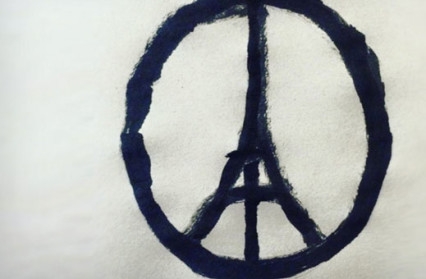The events in Paris last week were something that shocked many of us, and why should they not, because they happened in a city that is only a couple of hours away from London. The proximity of these terrorist attacks made most of us sit up and take notice. They helped recognise that there now seems to be a global rise in terror attacks by groups claiming to be Islamic across the world.
Yet the blood had barely stopped flowing in Paris than everyone with an axe to grind flooded social media using these events as a way of forwarding their own cause. The case for war and the case for peace: for greater freedoms and fewer freedoms; for more migration and less migration. We were asked to champion the cause of refugees who are fleeing situations far more horrific than that found in Paris, and we were asked to condemn them and keep them out for fear that they are slipping into Europe with those fleeing. Some sought refuge in religion; others took an opportunity to show their intolerance towards the religious.
We were exalted to turn our profile pictures ‘tricolour’ and then condemned for doing so because France was not alone in suffering such a fate. Is it not outrageous, went the argument, that we do not hear about other attacks, while stories of Boko Haram bombings from January were shared like they happened just last week.
It feels like we are living in dystopian times, and from the news this week it appears that if the terrorists do not get us then we will die of infection as new resistant strains of diseases set back medical research. Although, ironically, arguably the most serious threat to humanity, climate change, is barely given a thought, relatively speaking. As Lawrie Penny commented in a recent New Statesman article literature for young people is increasingly reflecting this as, for the first time in many generations, our young people seem to have less to look forward to than their parents.
The sense of doom seems to get amplified in the echo chambers of social media as we increasingly seem to reify our interactions with people and organisations with whom we agree, not wishing to rise to the challenge of…well…challenge. We have more information at our fingertips than ever before and yet, probably because there is so much of it, we tend to only look at that which confirms our beliefs, as Bryony Gordon wrote in The Daily Telegraph this week noting that social media is turning us into idiots. Social media is turning us into Manicheans who seem increasingly unwilling or unable to engage in critical thought.
I have been as guilty as anyone on this. Since the general election I have found myself becoming increasingly sensitive politically, that I am writing articles for Wales Arts Review at all is as a direct result of blogging my anger and frustration of the outcome last May. Furthermore, the rise of Corbyn in the summer did little to change that as my outrage against the Tories and the Blairist wing of the Labour Party grew. Spurred on by like-minded people I found myself questioning what I read less and less, happy to have my beliefs reinforced rather that engaging in any true dialogue.
As always after a terrorist atrocity there was much talk of defiance, of not letting the terrorists win, and of retaining our freedom: including the freedom to think and express those thoughts. If we really want to validate this, perhaps it is time to open up our echo chambers and challenge ourselves to think as freely as we can, if we do not, we will find ourselves increasingly in intractable silos that can lead us precisely nowhere. I am not saying that we should not have an opinion and that we should not seek to influence others, rather that our appreciation of the ‘other’ as a society is at a low point and declining, and in a milieu of radicalisation this cannot be a good thing.











